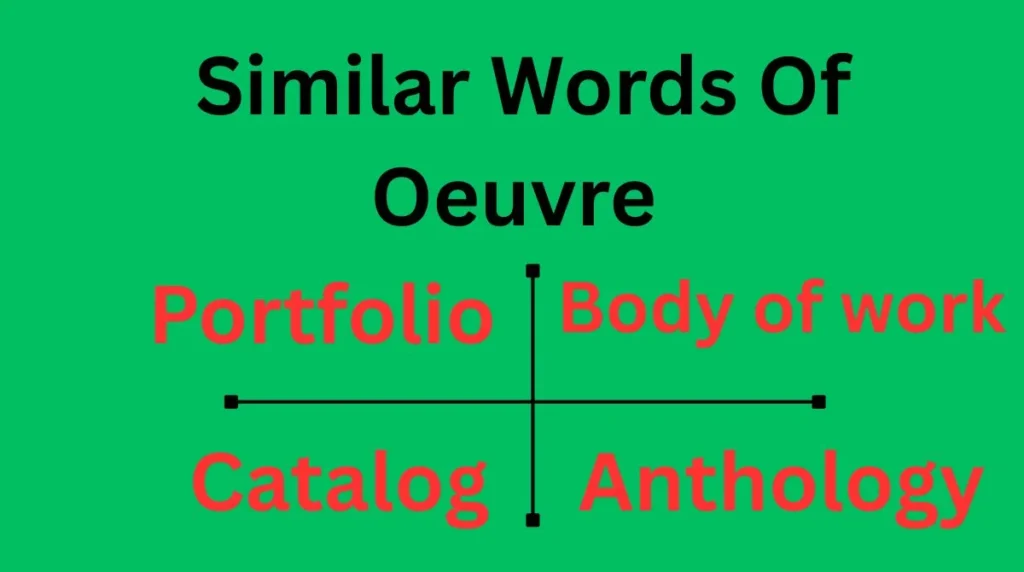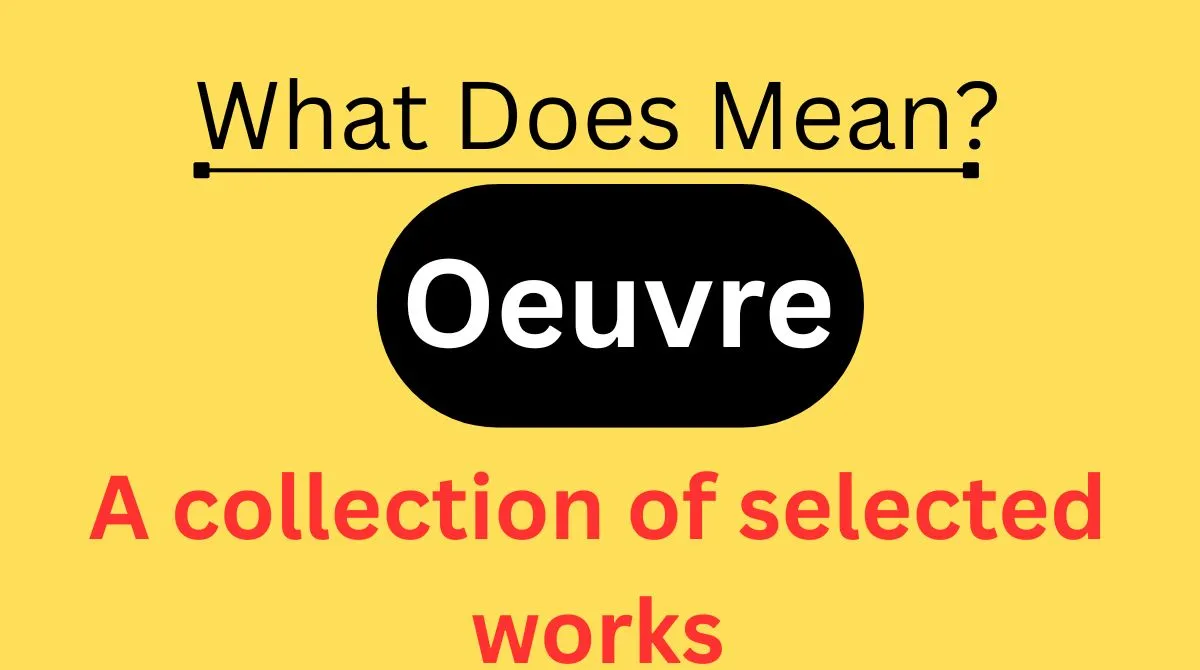In today’s fast-paced digital world, certain words catch the eye and spark curiosity—“Oeuvre” is one of them. Have you ever stumbled upon this term while scrolling through art articles, film reviews, or even casual conversations? If yes, you’re not alone!
This word might look or sound a bit fancy, but it holds a rich meaning that many want to understand. From artists to movie buffs and literature lovers, people across the USA are searching for “Oeuvre meaning” to grasp its true essence.
Why the sudden buzz? The word “Oeuvre” pops up often in cultural discussions, academic circles, and on platforms like TikTok where Gen Z mixes art with everyday slang.
It symbolizes more than just a word—it’s about a whole body of creative work that defines an artist’s journey.
If you’ve been wondering what exactly “Oeuvre” means, where it comes from, and how it’s used today, you’re in the right place. Let’s dive in!
What Does Oeuvre Mean?
Simply put, “Oeuvre” refers to the entire body of work produced by an artist, writer, or composer during their lifetime.
It’s not just a single piece but all the creations combined that showcase their style, evolution, and impact.
Key meaning:
Oeuvre = the full collection of works by a single creator.
Example:
The complete filmography of Steven Spielberg is considered his oeuvre, reflecting his growth and unique storytelling style over the years.
Origin & Background
The word “Oeuvre” has deep roots in the French language, where it literally means “work” or “labor.” It entered English in the late 17th century, mainly used to describe the artistic output of painters, writers, and musicians.
In French culture, “oeuvre” often refers to masterpieces or a comprehensive collection that defines an artist’s career. Over time, it gained popularity in English-speaking art circles and academic fields.
Interestingly, the word has kept its elegant and sophisticated vibe, symbolizing dedication, creativity, and legacy.
How It’s Used Today
While “Oeuvre” remains a formal term in art and literature, it’s making waves in everyday conversations—especially among younger generations and online communities.
It’s used to praise someone’s full range of work or accomplishments, sometimes even humorously or in slang.
Examples:
- “Did you see her latest paintings? Her oeuvre just keeps getting better! 🎨🔥”
- “That writer’s oeuvre is pure genius, every book hits different! 📚✨”
- “Bro, your playlist is your musical oeuvre, no cap! 🎧🎶”
People also drop the term in chats to sound artsy or highlight the depth behind someone’s efforts.
Pop Culture & TikTok Usage
TikTok and Instagram reels have played a huge role in popularizing “Oeuvre” beyond museums and galleries.
Influencers use it to describe their entire set of creative outputs—from fashion looks to makeup tutorials—as their personal oeuvre.
Memes often play with the word, combining it with dramatic or humorous content to mock or celebrate people’s creative sides.
For example, a TikTok video might caption “My oeuvre of bad decisions” with funny clips, turning a serious term into playful slang.
This trend shows how language evolves and how art vocabulary crosses over into everyday digital life.
Oeuvre vs Similar Words

Here’s a quick comparison to clear up confusion between “oeuvre” and other related terms:
| Term | Meaning | Difference from Oeuvre |
|---|---|---|
| Portfolio | A collection of selected works | More curated, not always complete |
| Catalog | Detailed list of works or items | Often formal and itemized |
| Anthology | Collection of writings or works by various creators | Oeuvre is from one person |
| Body of work | Same as oeuvre, broader use | More casual, less formal |
| Masterpiece | A single outstanding work | Oeuvre is the full set, masterpiece is one |
Phrases or Slang Variations
Here are some ways “oeuvre” is used or modified in casual language:
- Full oeuvre — The complete works of an artist
- Modern oeuvre — Contemporary creations, often digital or unconventional
- Personal oeuvre — One’s unique collection of creative outputs
- Oeuvre flex — Showing off your entire body of work or accomplishments
- Oeuvre vibes — The distinct style or feeling behind someone’s work
Why People Search It
People search for “oeuvre meaning” mainly because of:
- Curiosity: Encountering the word in articles, books, or social media and wanting to understand it fully.
- Cultural appreciation: Wanting to learn more about art, literature, or music and the language used to describe creators’ works.
- Impressing others: Using the term correctly in conversations or online posts to sound knowledgeable or sophisticated.
- Academic reasons: Students or researchers looking for clear definitions and examples for essays or projects.
- Pop culture influence: Trending TikTok videos or influencer content sparks interest in lesser-known words.
Synonyms & Related Terms
Here are some related words that are often used around the concept of “oeuvre”:
- Corpus
- Legacy
- Works
- Production
- Creations
- Portfolio
- Collection
- Artistic output
- Compilation
- Masterworks
FAQs
What is the plural of oeuvre?
The plural is oeuvres (pronounced “ur-vruh”).
Can oeuvre refer to non-artistic work?
Mostly no. It’s mainly used for creative or artistic works.
Is oeuvre used only for famous artists?
No, it can be used for anyone’s complete creative output.
How do you pronounce oeuvre?
It’s pronounced like “uh-VRE” or “uh-VR.”
Can I use oeuvre in casual conversation?
Yes, but it sounds more formal or artsy.
Conclusion
The word oeuvre carries a powerful meaning that connects us to the full journey of creativity an artist or creator experiences.
Whether you’re diving into classic paintings, exploring literature, or catching up on TikTok trends, understanding oeuvre helps you appreciate the bigger picture—the sum of all creative efforts that define someone’s legacy.
Next time you want to talk about someone’s body of work, dropping “oeuvre” will add a touch of class and depth. Keep exploring these cool words and impress your friends with your savvy knowledge! 🎨✨







